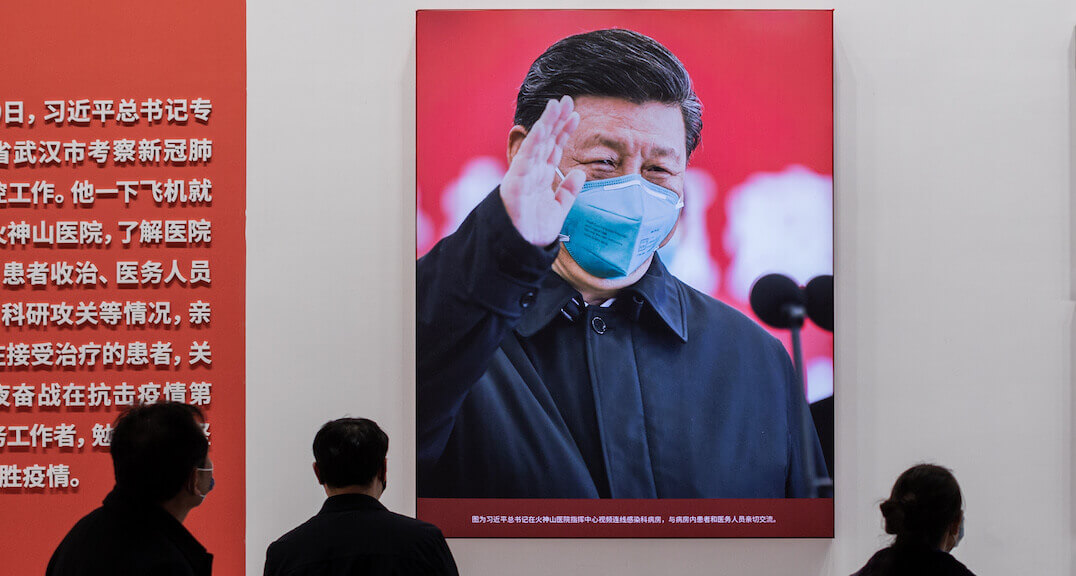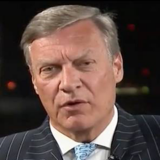As we celebrate, more lament, the horrible anniversary of the dreaded Wuhan Chinese Virus, designated COVID-19 by the World Health Organization, we should count the costs of that affliction in terms of both lives and treasure. Perhaps, we should also think about—what might have been.
At an estimated $82 trillion dollars, the worldwide economic impact of the coronavirus disease will be felt for generations to come. After six bailout bills, the latest a mere $1.9 trillion, the U.S. Congress has further indebted its citizens. And the number of related deaths in this country in the last year, if accurate, total 550,000 at this point; and nearly 3 million, globally.
An Alternative Reality
Go back just a year and think about where we were and consider a different scenario.
It was in the early 21st century and Donald Trump’s America was experiencing a gung-ho, robust economy—the envy of the world. With an entrepreneurial president who deregulated everything and talked up the market incessantly, all the numbers were up, up, up. Well, some numbers were way down: unemployment, inflation, and tax rates.
Then, in the span of just about a month, everything changed. The world went upside down, truly topsy-turvy, as some government salaried officials and self-proclaimed “experts” demanded to have their way and implement an untried, Bush-era pandemic response plan. Like many things stemming from the Bush Administration, it features the heavy hand of government as its guiding principle. And all due to a novel germ—released far away in a distant Chinese laboratory (or was it a wet market?) and then circulated around the world.
Two high-level mad “expert” scientists walked into the Oval Office and told the usually self-propelled and assured president that he absolutely had no choice. It was massive quarantine and mitigation—flatten the curve—or we all could die. To hell with the economy and people’s livelihoods. Together, in unison, they had a one-word solution: Lockdown!
He said, “A what”?
Their reply was that their “expert” models (especially at Imperial College, courtesy of Bill Gates and George Soros) predicted that if Trump did not immediately close down the entire economy, resulting in American job losses nearing 30 million, more than 2 million Americans could die.
The disease knew no boundaries—it affected every age, race, gender, and income level equally, or at least there was no evidence against this, and every doubt was put in service of more restrictions. Freedom be damned! The Bill of Rights must be suspended! After all, there was no cure, vaccine, or therapy; we would likely never have a vaccine, and the hospitals would be completely overrun. Lacking ventilators (which later would be considered essentially a death sentence) and protective equipment, total chaos would ensue, they screamed, at the top of their still-functioning lungs.
“Really?” Trump said, “Why should I believe you? Have you or any of your so-called credentialed ‘experts’ ever gotten it right before? On climate change? Is it global warming or global cooling? The population bomb? The end of the world as we know it? SARS? Ebola? Resource depletion? Your models have all been consistently wrong. Worse than wrong, and not very useful, either. Truthfully, if followed, they would have been catastrophic.”
So, the president sent them packing and later called his own team together in the White House Situation Room.
In this alternative scenario, here is what Trump said.
“It looks like yet another new Chinese flu this year could be very nasty. I want to go on national TV tonight—please add OANN—and warn the nation. They should take precautions and wash their hands, cover their mouths when sneezing or coughing and we will go out of our way to protect the old, infirm, and particularly those in nursing homes or with preexisting respiratory conditions. The rest of us will suffer some, but we will get through this. Eventually, we will have what some other scientists call, ‘herd immunity.’ That’s a good thing.”
“The cost of my plan will be negligible with our economy soaring and with American jobs as our focus, we will do just great.”
Now imagine everything stayed more or less within a range of normal. As in other years, it was a somewhat bad flu season and a few cities, like metropolitan New York, took a beating.
But the flu season came and went and some older and already sick people got ill and died at a rate on par with other bad years. The nation’s business went on uninterrupted. Unemployment dropped even further, governments at all levels took in unprecedented tax revenues, the markets held strong, while people’s retirement 401(k) plans looked better than ever. The price of oil was stable, and U.S. GDP continued to grow at over two percent.
Americans went shopping, continued commuting to work, and went on vacation. When summer came, they went to the beaches and the mountains. They stayed at hotels and motels. The churches were full every Sunday, and restaurants were as busy as ever. The NBA season went down to the wire and we had a seven-game head-turner during the World Series. The NFL and college football seasons started with much fanfare in the fall.
Schools never closed, not for even a day. Marriages went ahead, family reunions, birthdays, and graduations. Houses and cars, and just about everything else, were bought and sold.
The country, in a word, thrived.
In November, the election saw a successful president defeat a demented, out-of-touch challenger in a landslide that brought the president’s party back to power in strength to control both the House and the Senate. It was all so predictable.
Life was good.
Instead, we got what we have now.

The Lesson Learned?
The COVID-19 pandemic has exposed the underlying flaws of globalism (and rule by experts) as an ideology.
As a system of thought globalization is an ideology that puts unquestioning faith in a hyper-connected world built not only on technology, international trade, and movement of labor but also on a liberal, post-national eschatology.
Although globalization is a Western form of historical determinism, China is central in this worldview as a major engine of economic growth, especially via the offshoring of manufacturing capacity.
Globalist assumptions hold that the benefits of free trade, economic cooperation, and enhanced transnational connectivity will erode traditional attachments to the nation-state. Over time world populations will be socialized into the post-national norms of global governance, universal human rights, and redistributive justice. Transnational and regional institutions like the United Nations and the European Union will, it is assumed, constitute the vehicles through which the happy end of polyarchy will one day be reached.
The Chinese Communist Party has other ideas.
It has asserted a different form of globalization than the one promoted in many Western societies. Its vision remains one that is supremacist. It views the world in terms of national and political struggle, and it wishes to see China at the center of the international system.
In this goal, it is facilitated by globalist idealists in Western policymaking circles and the intelligentsia, who turn a blind eye to China’s gross human rights abuses, the establishment of a network of client states and its infiltration of international agencies and Western institutions.
While some countries have awoken to the threat of China’s strategy, including Australia and the United States under the Trump Administration, others have underestimated the extent to which their naiveté renders them vulnerable to Chinese state influence.
The ideology of globalization, however, is seriously threatened by COVID-19. China tried to cover up the contagion and did little to stop its worldwide spread from the initial source in Wuhan. The World Health Organization, beholden to Beijing, was complicit in failing to pass on adequate warning of the seriousness of the pandemic. Italy was particularly badly affected, having a large Chinese community since it joined President Xi Jinping’s Belt and Road initiative, and the virus almost certainly was spread by workers returning from the Lunar New Year festivities in 2020.
Further, the claim that the infection began at a traditional “wet market” was a convenient narrative for the Chinese authorities, possibly masking an accidental leak from the bat coronavirus laboratory at the Wuhan Institute of Virology.
As nations rushed to close their borders a year ago, restrict travel, and looked to their own resources to escape the crisis, the follies inherent in globalist ideology were revealed.
Its precepts have now been thoroughly discredited.
Western leaders have intimated that there will be repercussions from the crisis. These include debt cancellation for poorer countries and compensation for the dire economic damage caused by the drastic lockdown on people and businesses across the world.
The key point, however, is that while the pandemic was made in China, the conditions that gave rise to the Year of the Bat arose also from the assumptions of globalist thinking in the West. These have resulted in extraordinarily poor policy choices.
It could have been much different.

